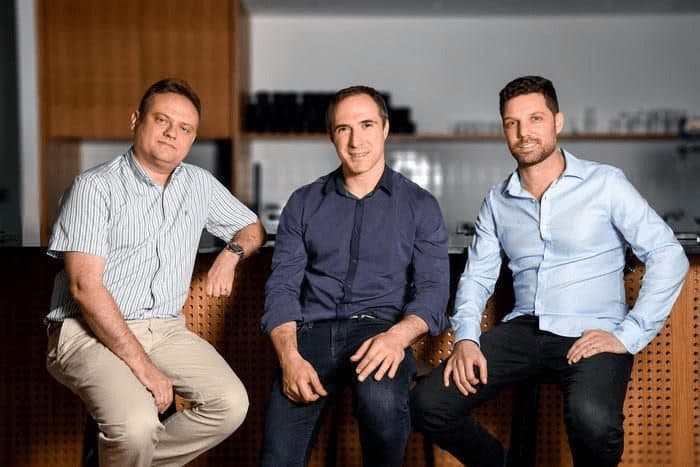Fireblocks Raises $133M to Scale Custody Platform, Double Headcount
“We wanted to make sure our customers understand we are here for the long run and we have a substantial amount of capital, systems and service up and running,” Fireblocks CEO Michael Shaulov told Blockworks.

Fireblocks leadership team (from left): Pavel Berengoltz, Michael Shaulov and Idan Ofrat; source: Fireblocks
- Latest investors include The Bank of New York Mellon and VC arm of Silicon Valley Bank
- Company plans to double its 100-person team by the end of year with a focus on increasing its engineering and R&D
The digital assets infrastructure provider Fireblocks has raised $133 million in Series C funding, including strategic investments from The Bank of New York Mellon and the venture capital arm of Silicon Valley Bank.
The three-year-old Israeli startup builds tools for moving, storing, and issuing digital assets. It’s the same technology underpinning BNY Mellon’s forthcoming digital asset custody service for institutional investors, which it revealed last month.
Fireblocks plans to double its 100-person team by the end of year with a focus on increasing its engineering and R&D hires as it scales its business. CEO Michael Shaulov told Blockworks the number of customers it’s onboarded in the last three quarters have exceeded its expectations by 180% to 200%. In the first quarter of 2021, it planned to onboard 34 customers and has so far onboarded 78, he said.
The long run
“We wanted to make sure our customers understand we are here for the long run and we have a substantial amount of capital, systems and service up and running,” Shaulov said. “Crypto is now booming, but anyone who’s been in this space for long enough knows it’s a fairly cyclical market. So if there is a downturn, [they] can know we can survive and continue to service the next day.”
Custody solutions have been key in making institutional investors more comfortable with digital assets and bringing them into the mainstream. At the beginning of the month PayPal acquired another Israeli custody startup and Fireblocks’ biggest competitor, Curv, for a reported $200 million.
“Three or four years ago when these critical custodians were not widely established there were persistent issues with loss, fraud, breaches; crypto assets would just disappear,” Lisa Ellis, a partner and senior equity analyst at MoffettNathanson, told Blockworks at the time.
Looking beyond custody
But custody isn’t really a service, Shaulov said, just the bare minimum required of them if they want to build a more robust digital assets business.
“Custody is a defensive approach for [banks],” he said, “but they all understand if they want to be on the offense, differentiate and create something unique, they need to look several steps beyond custody.”
The company has more than 200 customers and also serves crypto native companies, exchanges, liquidity providers, OTCs and hedge funds. Shaulov said it’s testing and piloting its technology with four other multinational banks besides BNY Mellon.
In addition to custody, its technology allows customers to rapidly deploy tokenization, asset management, trading, lending and payment solutions across public and private blockchain networks. It also has a business solutions unit made up of former Accenture and McKinsey alums to help companies find the business case for digital assets.
The latest investment brings Fireblocks’ total funding to $179 million to date. The round was led by Coatue, Ribbit, and Stripes. Paradigm, Galaxy Digital, Swisscom Ventures, Tenaya Capital and Cyberstarts Ventures also participated.






